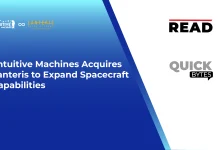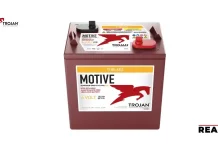Quintus Technologies stands out in high-pressure manufacturing. They are making it easier for all-solid-state battery (ASSB) developers to go from lab work to industrial production. The company has released the QIB 300 and QIB 600 Warm Isostatic Press (WIP) systems. These systems help manufacturers check materials. They also improve processes and boost high-volume production efficiently.
The QIB 300 and QIB 600 systems are designed to be fully production-representative. They offer ASSB manufacturers a dependable platform. This helps in testing, refining, and industrializing next-generation battery technologies.
“Our new QIB 300 and QIB 600 battery presses are production-representative, enabling manufacturers to validate materials, large cell formats, and processes under industrially relevant conditions,” says Peter Henning, Director, Marketing and Sales, Quintus Technologies. “With growing volume demand, the process can be scaled up through a transition to a larger vessel, ensuring full preservation of process integrity.”
Enabling the Next Wave of Advanced Battery Innovation
ASSBs are gaining popularity for electric vehicles, motorsports, aerospace, and other key uses. Their high energy density, safety, and lighter designs make them the best choice. ASSBs cut fire risks by using solid-state electrolytes instead of flammable liquids. This change also helps achieve longer driving ranges and smaller battery designs.
Also Read: GLS Italy and Quadient Partner for its Network of Pick-Up Points
We must find ways to move these technologies from pilot production to full-scale manufacturing. We need methods that ensure uniform, defect-free densification of battery parts. Methods such as calendaring and uniaxial pressing often lack the structural stability required for reliable performance.
Studies indicate that Warm Isostatic Pressing (WIP) produces the densest, defect-free microstructures. It also improves ionic conductivity compared to traditional methods. WIP lets you densify multilayer ASSB cells at the same time. This boosts capacity and lowers costs per kilowatt-hour.
Engineered for Pilot Production and Scalable Growth
Quintus designed the new WIP models specifically for ASSB pilot-scale manufacturing, incorporating advanced capabilities that support seamless transition to mass production:
Pressures up to 600 MPa and temperatures up to 145°C to achieve optimal densification and material bonding
Horizontal loading system for rapid, automated batch handling and high-throughput workflows
Configurable fixtures to maximize cell loading efficiency, boost pack density, and reduce per-cell manufacturing costs
Compact footprint and efficient system design to minimize installation time and ongoing operational expenses
Beyond equipment, Quintus provides end-to-end application support. At the company’s Battery Application Centers, engineers assist with material evaluations, process development, and production integration. Customers also benefit from the Quintus® Care Program, which offers tailored service and maintenance strategies to ensure maximum system uptime.
Quintus invented the wire-wound pressure vessel and keeps raising the bar for safety and durability. Their systems are certified to global standards, including ASME U3, PED, and CE.
“The shift to all-solid-state batteries will redefine mobility and energy storage—but it can only succeed with manufacturing technologies that deliver consistency, safety, and scalability,” Johan Hjärne, CEO of Quintus Technologies, comments. “Our QIB 300 and 600 series presses reduce technical risk and time-to-market and offer better economics per kilowatt hour of battery capacity, giving the industry the confidence and tools it needs to move from research breakthroughs to real-world industrial production.”




